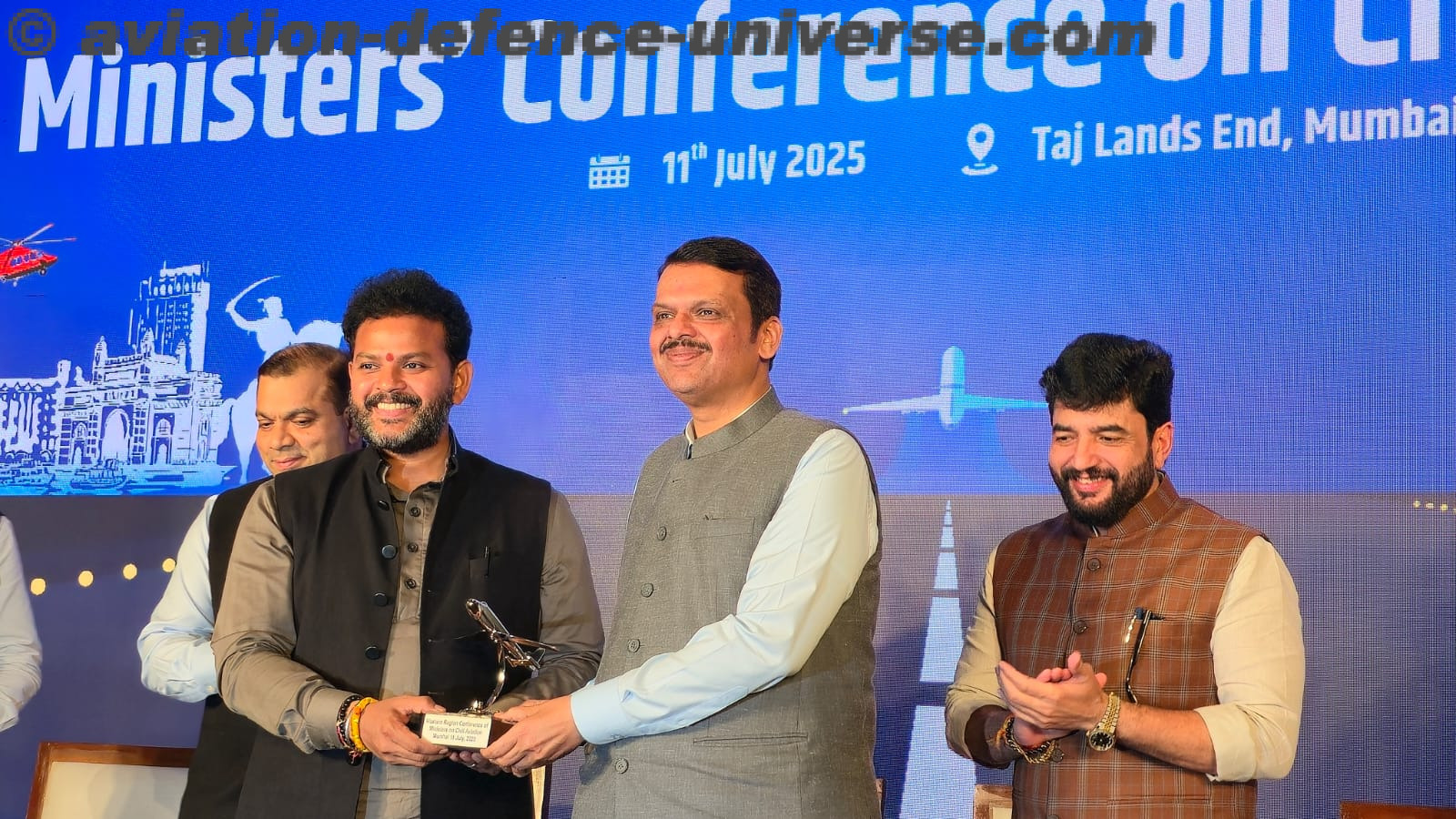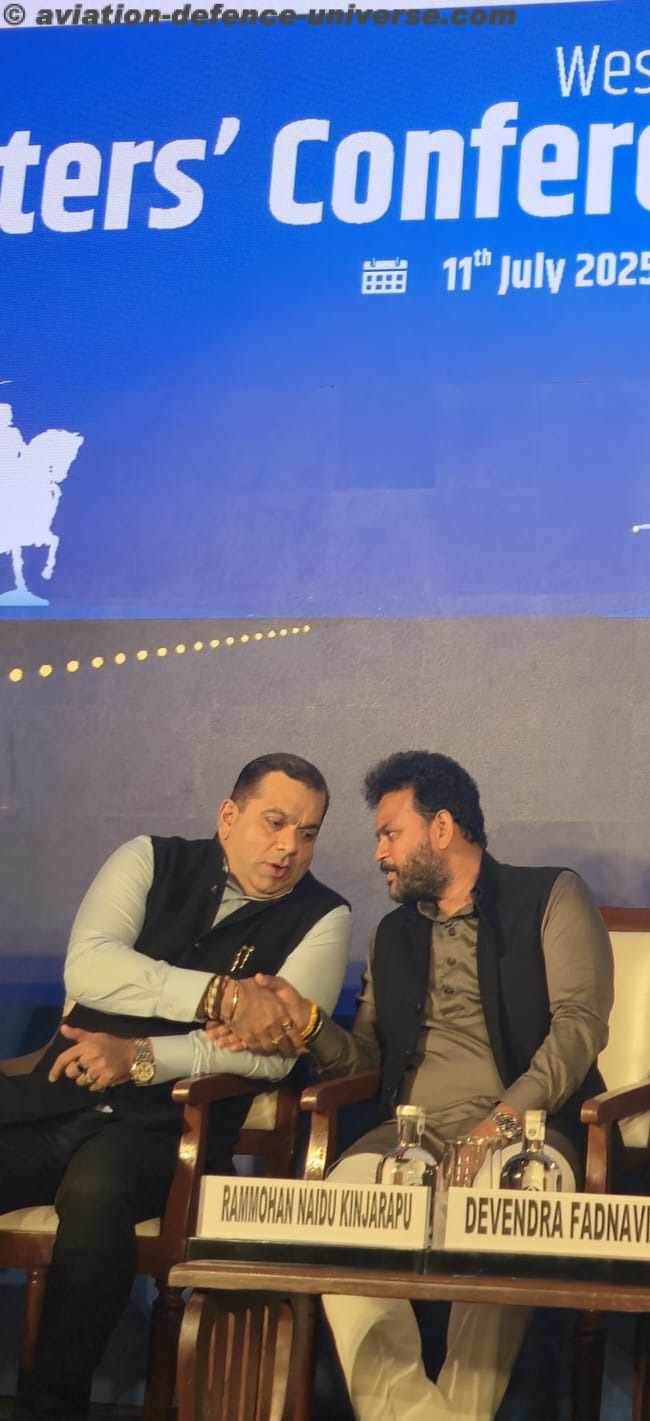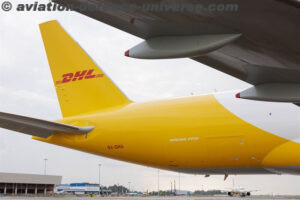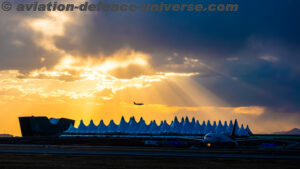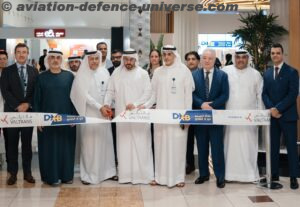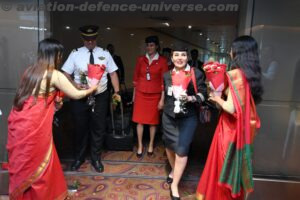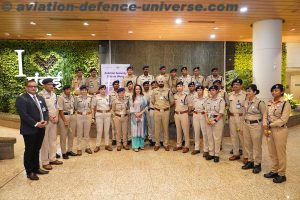 Mumbai. 31 July 2023. Aviation security is of paramount importance for safe and secure airport operations. As the primary entity responsible for the safety and efficient functioning of airports, CSMIA prioritizes security measures to ensure the well-being of passengers, staff, and the public, airline companies and aircraft.
Mumbai. 31 July 2023. Aviation security is of paramount importance for safe and secure airport operations. As the primary entity responsible for the safety and efficient functioning of airports, CSMIA prioritizes security measures to ensure the well-being of passengers, staff, and the public, airline companies and aircraft.
CSMIA is committed to providing robust security measures and a safer and more secure environment for all stakeholders, protecting their reputation, complying with Government regulations, and facilitating sustainable growth in the aviation industry.
There are several teams at CSMIA that work closely with each other to ensure a secure and safe environment within and outside the airport premises. All these teams have specific responsibilities related to Airport security.
Aviation security Training Institute (ASTI)
- Education and training in aviation is the most important step in making aviation a secure place.
- Aviation Security staff must have a comprehensive understanding of aviation law, regulation, and procedure to keep passengers and crew members, employees and General public safe and reduce the likelihood of Acts of unlawful interference.
- Aviation Security Training Institute (ASTI) at CSMIA is an accredited institute by Bureau of Civil Aviation Security (BCAS) to conduct various Aviation Security courses for internal & external stakeholders at airport.
- The objective of ASTI is to ensure that personnel carrying out aviation security functions are suitably trained and certified as per BCAS Training policy, further it ensures their quality of performance is kept to the optimum level by conducting refresher training.
- ASTI has proactively conducted 339 Aviation Security batches for ~13000 candidates in FY 22-23 which is mandatory for airport employees to obtain AEP’s and upkeep the accreditation of ASTI.
- The ASTI is equipped with all security equipment required as per BCAS guidelines for Training and testing purposes.
- Recently, Computer Based Training (CBT) software has been installed & commissioned for the x ray screeners training in a simulator mode of a CTEDs machine (new technology).
Landside Security & Operations
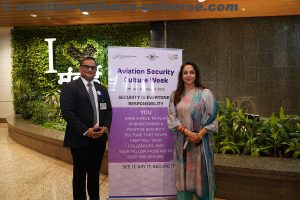 As the name suggests, the team’s major responsibility is to keep the area of the airport outside the terminal safe for passengers & stakeholders.
As the name suggests, the team’s major responsibility is to keep the area of the airport outside the terminal safe for passengers & stakeholders.- Landside Security at CSMIA works closely with local authorities such as Police, Traffic Police, RTO, MCGM to ensure smooth movement of people and vehicles around the airport.
- On average, handle traffic of 86,000 vehicles per day at both the terminals and maintain the area congestion free.
- Responsible for Security of Multi Level Car Parking with a facility of 5000 & 796 cars at T2 & T1 respectively. Each vehicle is checked physically as well as with an advanced Under Vehicle Scanning System to ensure that the vehicle is safe to enter the parking area.
- Team keeps a surveillance on anti-social elements from Landside Joint Control Centre through a robust network of CCTV cameras installed at the various prominent locations outside the terminal and alerts the Police / CISF in case of any suspicious movements.
- Provide last mile connectivity transport service to arriving passengers through Cool Cabs, B/y taxis, Women Driven cabs, Mumbai Pune taxis which are operated at both terminals with an average booking of 3500 taxis per day.
- Team addresses the Passenger complaints related to transport facility & provide related feedback
Terminal and Passenger Security
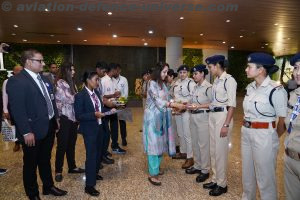 The most fundamental reason for aviation security is to safeguard the lives of passengers and personnel. Airports are vulnerable to various security threats, including terrorism, hijacking, and criminal activities.
The most fundamental reason for aviation security is to safeguard the lives of passengers and personnel. Airports are vulnerable to various security threats, including terrorism, hijacking, and criminal activities.- Robust security measures at CSMIA help prevent such incidents and ensure that travellers can have confidence in their safety when using the airport.
- The Central Industrial Security Force (CISF) carries the responsibility of keeping the terminal operations inside CSMIA secure.
- CISF team members deployed at the departure entry gates of terminal to check each ticket and reconcile the credentials of each passenger through photo identity card and allow only bonafide/authorized passengers with valid documents to enter the terminal building.
- CISF also takes care of frisking passengers and scanning the cabin baggage and ensuring no prohibited or dangerous items reach the aircraft.
- The CISF teams also responsible for providing an overall counter-terrorist cover to the airports on the land side and air side.
- CISF team is equipped with all the required security equipment like bullet resistant vehicles, bullet resistant jackets, helmets, shields and Quick Reaction Team accessories.
- The CISF team members keep a close watch on the airport peripheral wall to stop unauthorized access to the runway and keep the airside secure.
- Quick Response teams from CISF regularly patrol at the airside.
- Mumbai airport is the second busiest airport in the country and handles approx. 5 lakh passengers daily.
- CISF also screens all the material/F&B items entering the terminal to ensure that no restricted article enters the terminal.
In-line Security:
- In-Line security team at CSMIA is responsible for safe registered baggage operations. In-Line security team is always on their toes ensuring every piece of luggage is screened before it is clear for loading on the aircraft.
- Detecting and removing potential threats that could cause disaster is the main goal of the In-Line Security team.
- In-Line Security team’s job of baggage screening appears simple, but it is very crucial & critical for the safety of the passengers and the airport.
- The highly efficient and experienced In-Line Security team undertakes the mammoth task of ensuring each bag is safe to put on the planes.
- With their years of experience, In-Line Security team members can detect any bag having suspicious items within few seconds and stop that bag from going on the aircraft.
- The In-Line Security team at CSMIA ensures that the bags dropped at the airline counters are screened, security cleared and reach the baggage handlers in approximately 10 minutes of time.
Advance mechanism at CSMIA for Check-in baggage
- The baggage system installed at CSMIA has a capacity to handle 9,600 bags per hour at T2 and 4800 bags per hour at T1.
- Total length of the baggage belt is approximately 8 KMs.
- Larger bags, guitar cases, bags holding sports equipment, fragile luggage and live animals go through the Super Out of Gauge (SOG) machines .
- There is a separate elevator for bags that could damage the conveyor.
- The baggage control room can trace any bag and its position in the system.
- The bags are under CCTV coverage throughout the system.
- The entire system is automated, and bags are not tampered by a human at any point of time.
- It takes just 20 to 30 seconds for the In-Line Security team members to scan each bag and they must do this with 100% accuracy to ensure safety.
Cargo Security
- Airports handle not only passengers but also huge volumes of cargo, including general cargo, perishables, (vegetables, medicines, pharmaceutical goods as well as vaccines) valuable goods, sensitive documents, and hazardous materials, etc.
- Ensuring the security of cargo terminal assets is crucial to prevent theft, tampering, or potential threats to the environment and public safety.
- CSMIA has a dedicated cargo facility that is under 24×7 security and CCTV surveillance.
- CSMIA consistently achieve highest throughput efficiency complying to both global & local regulatory, security standards.
- Access control measures are enforced to restrict entry to authorized personnel only, preventing unauthorized access to sensitive cargo areas. Cargo has a separate Entry Permit Section to ensure strict compliance with documentation for the grant of entry into the premises. CISF has been deployed at ACC and SACT for armed support and functions like surveillance and access control of Sterile Hold Are (SHA).
- A comprehensive CCTV system is in place, monitoring cargo facilities round-the-clock to enhance surveillance, deter illicit activities, and facilitate prompt responses to any security incidents. To achieve this, CCTV cameras, world-class dual-view X-ray machines and Explosive Trace Detection (ETD) systems, are strategically installed across both international and domestic cargo terminals for cargo screening. These cutting-edge technologies ensure thorough cargo screening processes, allowing for the efficient and secure transportation of goods.
- Traffic Management: Managing the daily movement of approximately 1200 cargo vehicles require efficient traffic management strategies, including organized queuing systems and stringent documentation compliance for Imports as well as exports.
- By integrating these security functions, air cargo operations maintain the highest level of safety and security standards, fostering confidence in the global supply chain and promoting the smooth flow of goods across globe.
- Aside, robust perimeter security measures are implemented to prevent unauthorized access and protect cargo areas from external threats.
Airside Security
- Airports are vulnerable to various security threats, including terrorism, hijacking, and criminal activities.
- Airside security is of paramount importance in aviation and airport operations. It refers to the security measures implemented to protect the restricted areas of an airport that are directly related to aircraft movement.
- Airside security protocols also involve contingency planning and emergency response procedures. Being prepared for various scenarios, such as an aircraft emergency landing or potential security breaches, enhances the ability to respond effectively and protect lives.
- CSMIA has a robust mechanism of CCTV cameras that cover the entire airside area. CISF team monitors the video footage of CCTV cameras for any suspicious and unauthorized access to the airside.
- The peripheral wall around the airport is protected by the CISF teams 24×7, there are watch towers at the airside which help the CISF teams to ensure no one crosses the peripheral wall and enters the airport premises.
- CSMIA has installed a state-of-the-art Perimeter Intrusion Detection System (PIDS) system to detect any unauthorized access to the airside.
- The Quick Response Teams of CISF also the airside 24×7 and keep a close watch on the airside.
Airline Security
- The Airline Security team ensures the security of the aircraft as soon as the aircraft is on the ground.
- The Airline Security team members ensure everything that goes inside the aircraft is secure. This will involve security of baggage, cargo, catering.
- The team escorts the cargo, catering from their respective locations to the flight and checks them before loading on the aircraft.
- Once all the passengers deboard the aircraft, the airline security team members board the aircraft for a security check and search of aircraft, to confirm that no suspicious objects, weapons, explosives or other dangerous devices, articles or substances have been placed on an aircraft.
- The access control of aircraft is done by airline security team, is to ensure only bonafide staff/ground personnel/authorized government officials access the aircraft and items being carried by them, shall be frisked/ checked by airline security staff.
More from CSMIA:
CSMIA introduces faster entry with scanners at the entry gates and touch-less self-check in:
- The self-check-in kiosks offer a touch-less feature, allowing passengers to remotely check-in by scanning a QR code with their own phones in turn reducing surface contact during their journey.
- Passengers can access a remote keyboard and mouse on their mobile devices by scanning the QR code displayed on the kiosks.
- Amidst the pandemic, this technology further ensures passenger safety at the airport.
CSMIA’s dedicated efforts to enhance international and domestic passenger movements by expanding the PESC area for a more streamlined experience.
- CSMIA recently revealed the expansion of its Pre-Embarkation Security Check (PESC) facility, making it one of the country’s largest at approximately 2,075 square meters.
- The first phase of the project was launched on March 27, 2023, which included eight new security lanes and introduced a modern domestic to domestic (D2D) transfer facility spanning 328 square meters.
- With this the dedicated space for security screening has increased to a total of 5,735 square meters.
CSMIA has installed 2D Barcode readers at the entry gates of Terminals 1 & 2, to expedite entry into the terminal.
- January 26, 2023 onwards, CISF officers at CSMIA’s Terminal entry gates will scan the barcodes of the ticket or boarding pass, eliminating the need for manual ticket checks.
- With more than 900 flight movements daily, the airport caters to around 150,000 passengers every day. This new streamlined process represents a significant security enhancement.











